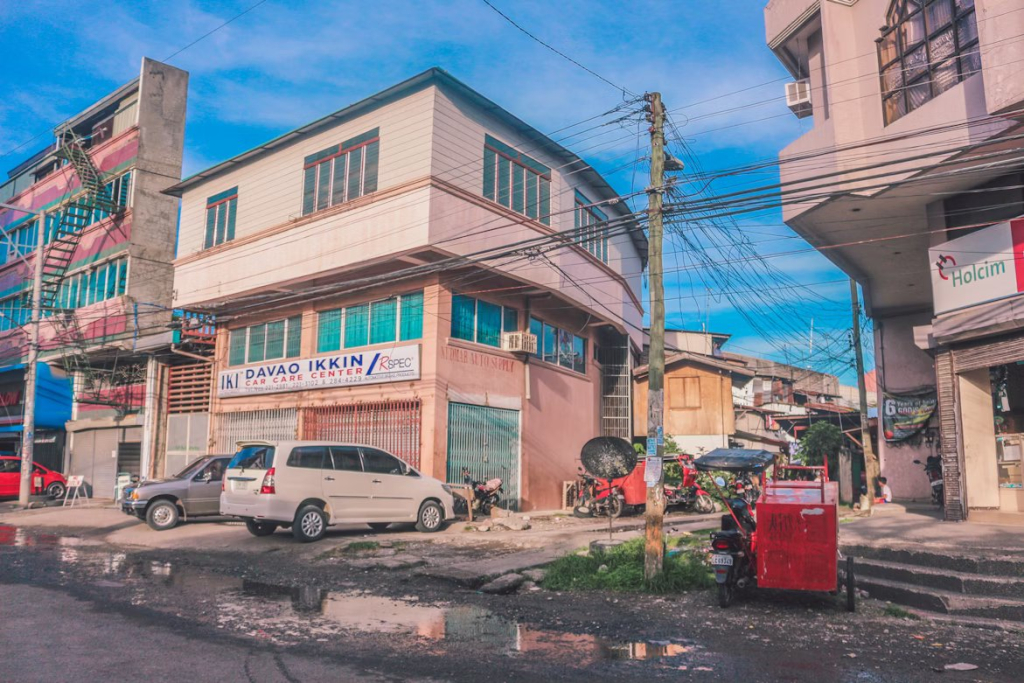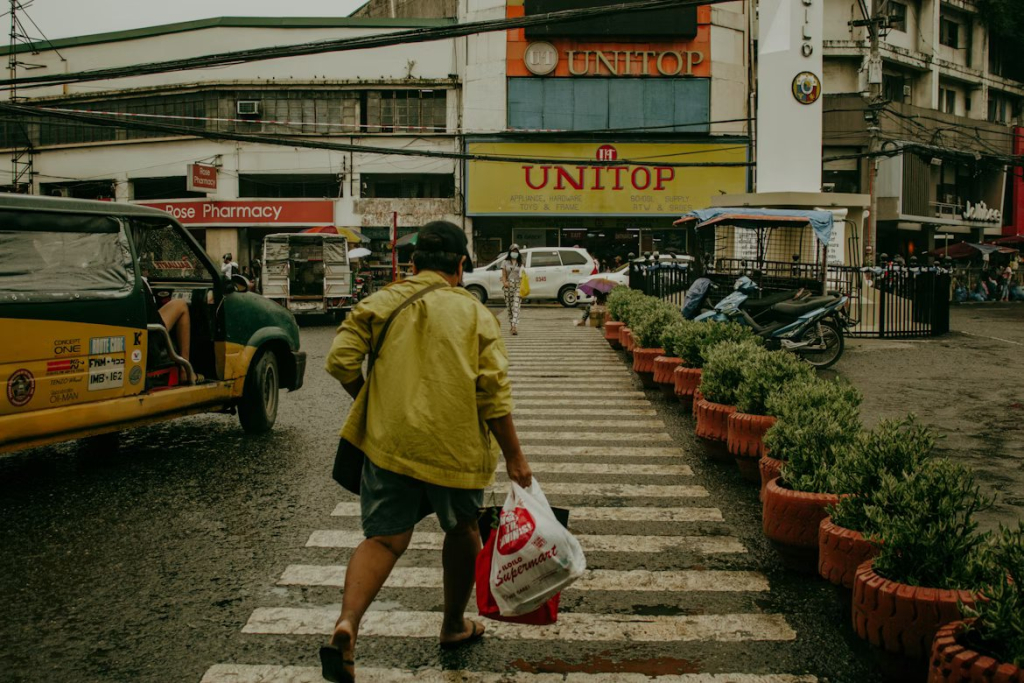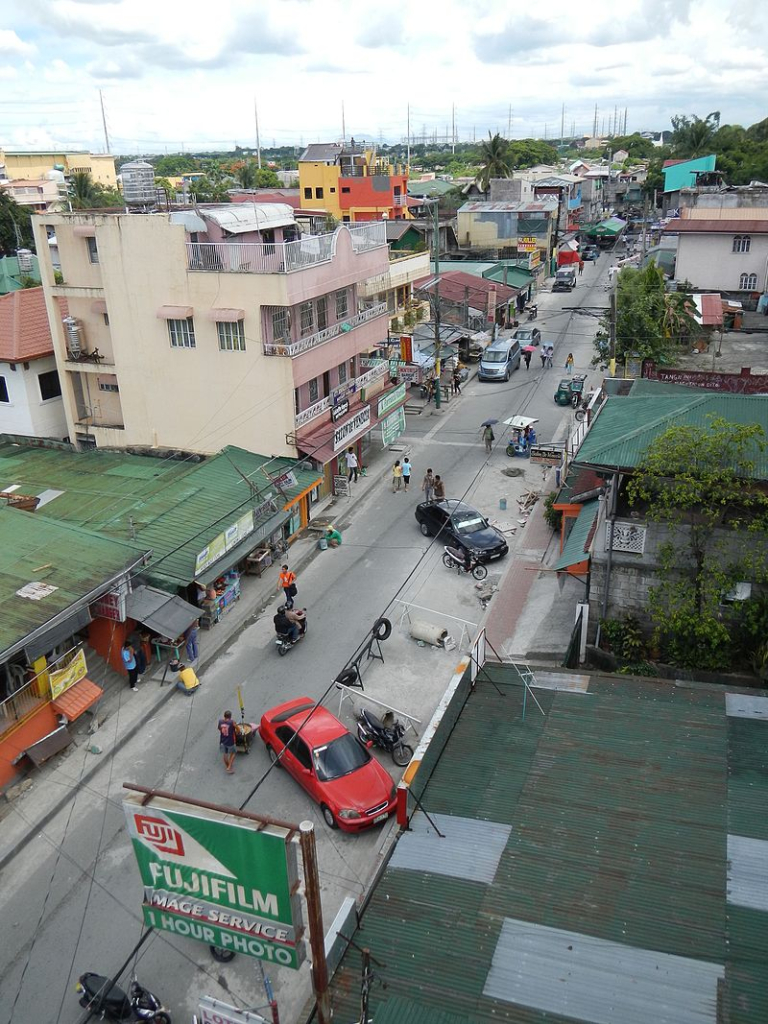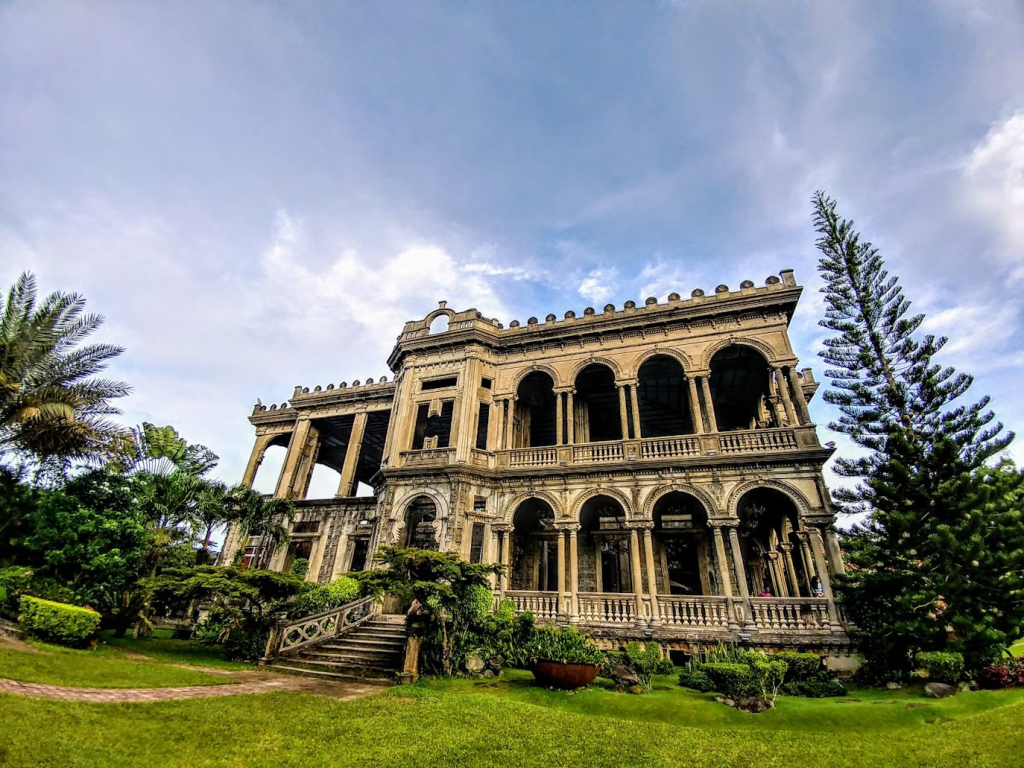Looking for where to live in the Philippines for cheap? Here is our list of the most attractive cities in terms of lifestyle affordability.

Earlier this year, Manila City was dubbed as one of the most expensive cities in Southeast Asia to live in, despite the fact that it is considered a third world country. This was from a report issued by iPrice last April 2021, which aggregated and compared the monthly cost of living in the Philippines along with other countries like Indonesia, Malaysia, Singapore, Thailand, and Vietnam.
To provide a sample computation, a family of four estimated monthly costs is at Php151,592 while a single person estimated monthly costs is at Php 81,966. Research shows that the cost of living in the Philippines is cheaper than in 69 percent of countries in Asia, nine out of 13 to be precise and cheaper than in 88 percent countries in the world, or 59 oiut of 67. Still, the living index in the Philippines is still relatively higher compared to other countries in Asia, specially in large cities and city centre.
Another source, looking at the entire country, contends that the average monthly cost for a single person is P31,343, while a family of four incurs an estimated P108,548, both without rent, for non-prime areas or rural areas.
To delve deeper into the specifics, Manila secured the second-highest spot in rental costs, trailing only behind Singapore. In terms of living costs, Manila ranks third in most expensive and lowest in average salary for an average person. The findings of this analysis underscore that Manila is the most expensive city to live in which is a staggering 168% higher than the average salary in the city, as detailed as well in the report issued by iPrice.
As of 2023, Mercer’s 2023 Cost of Living Survey has positioned Manila as the 133rd city out of 227 selected cities in Southeast Asia, saying that Manila became “relatively cheaper for employees working abroad.”
Even so, Manila stands as one of the most expensive cities in the country with higher cost of living in the Philippines, next to Makati City, Quezon City, and Cebu City where market price for almost anything is also higher.
The result of this is an uncomfortable lifestyle for the majority of its dwellers, leading to a lower quality of life.

Although the cost of living in major cities in the Philippines may be relatively high, compared to other third-world countries, it is still half the cost of living in Western countries like San Francisco in the U.S. This is why it is no surprise to see many foreigners eventually settling down in the country. Even Filipino workers and Filipino citizens who live abroad come back and live here for good. They are aware they can save more money and live cheaply in the Philippines. Moreover, the abundance of leisure activities, popular destination, affordable local restaurants, local markets, local brands, and other utilities like water bill, make for a comfortable life even in larger cities.
With these numbers, we can conclude that living in a major city tends to be more expensive and less comfortable. That said, you may be considering moving to another city where you can enjoy the same convenience at lesser costs – but which city would it be?
What are the less expensive cities in the Philippines
We usually search places with lower cost of living in the Philippines to live in because we want to maintain our desired lifestyle without needing to spend too much. When gauging an expensive city, we often look at the affordability of the cost of living based on monthly cost. Check out the biggest expense, from rent, transportation costs, food costs, to utilities.
To do this, you have to compare cost of things – this includes basic necessities like clothing, utility, food, transportation costs, and even real estate prices. By knowing these, you could save money by making estimates and creating a sample monthly budget to compare with your average monthly earnings.
We have listed five of the cheapest cities to live in the Philippines, where you can live comfortably with your average monthly net salary and budget. But before we proceed, let us first discuss the important factors you should note before moving to a new city.
Factors to consider when moving to a new city
There are a lot of factors to think about and consider when moving to a new place. Cost of living in the Philippines varies depending on their location. Our living expenses vary depending on the place we live in. If you are living in a major city like Manila, expect to have higher expenses than when you are living in other cities. Listed below are the key components related to the cost of living factor.
1. Housing costs
The cost of housing is often the most significant expense – it includes rent for tenants or mortgage payments for homeowners, which can account for a substantial portion of the budget.
You should consider the average prices for housing in the new area and how they compare to your current location. For example, the average monthly rent for a one-bedroom apartment outside the city center ranges from Php 10,000 to Php 40,000, depending on its location in the city and the available conveniences provided for in the rented space like internet connection, air conditioning unit, and other furnishings.
2. Public transportation
When it comes to transportation, there are a lot of things to look into. One of the main things you should check is the commuting expenses.
If you own a car, you should take note of the gasoline prices, parking fees, toll gates, and maintenance fees, as these vary per city. Aside from these, you should also be aware of the possible traffic congestion that you might encounter, as this affects your travel time and your use of gasoline.
For those with no cars, the cost of transportation through public transit contributes to daily living expenses. The cost of transportation is influenced by how easily individuals can access amenities, such as grocery stores, healthcare facilities, and recreational areas. Proximity to essential services can reduce transportation costs and enhance overall convenience.
3. Food costs
Food is a fundamental necessity for sustenance and well-being. It represents a non-negotiable expense, and the cost of obtaining nutritious and adequate food directly impacts an individual’s health and quality of life.
As food is a regular and frequent expense, you need to budget effectively on a daily, weekly, or monthly basis to maintain financial stability and prevent budgetary strain.
The cost of food varies across regions with costs within a rural area lower than in other city. Compare grocery prices a few years back to their present costs to understand how much you may need to budget for food expenses in the new area.
You should also consider your frequency of dining out or ordering takeout. Dining choices can vary significantly based on location and personal preferences. Ideally, choosing a mid-range restaurant is the best choice as it provides you good quality of food without spending too much.
4. Utilities
Utilities, such as electricity, water, and gas, are essential services required for basic living. They are necessary for maintaining a comfortable and functional home environment. These are integral to the overall cost of living, directly impacting the affordability and functionality of a home.
You must consider these costs when evaluating the financial implications of living in a specific location and make informed decisions to maintain a balanced budget.
5. Other Expenses
Aside from your daily expenses, you must also consider the things you buy for yourselves or your family for leisure – like clothes whether local or imported brands, streaming services, shoes, gym membership, etc. – as these are part of your monthly expenses. The cost of entertainment and recreational activities can differ between locations, you can look into that as well before you decide.
Places with low cost of living in the Philippines
Based on these standards, here are the cities in the Philippines you might consider living in:
Davao City

King City of the South
Recognized as the largest city by land area in the Philippines, Davao stands out as one of the premier cities to reside in within the archipelago.
As a major economic hub in Mindanao, it plays a crucial role in the region’s development. The city’s thriving economy is driven by industries such as agriculture, manufacturing, and trade. Its strategic location as a gateway to international trade routes positions it as an essential player in the economic landscape of the Philippines.
Healthcare, shopping centers, and business centers can be found within the city center, presenting ample economic opportunities. In terms of real estate, there are ample location choices because Davao’s expansive land area, with rental costs notably lower compared to other metropolitan areas.
Miscellaneous costs, including utility costs and transportation expenses, are manageable, making it easier for you to save money. Public transport, particularly jeepneys, remains an economical choice, charging around Php 11-13 for a 1.5-kilometer ride, while private taxis start at Php 40.
Affordability extends to the culinary scene, where local and foreign cuisines, street food, and fresh produce are available at reasonable prices.
Residents can comfortably manage their living expenses in Davao City, with estimated monthly costs ranging from P19,000 to P22,000, offering an enticing combination of economic feasibility and a high quality of life.
For your home options in the region, check out Camella’s house and lot for sale in Davao.
Iloilo City

City of Gastronomy
Iloilo is a thriving city in the Western Visayas region with competitive career opportunities and cheaper goods and services.
There are a lot of employment and entrepreneurial opportunities available in the city, like the Business Process Outsourcing (BPO) industry, which is currently thriving, and other service industries.
More than just a vibrant business district, Iloilo City is also surrounded by the most visited tourist attractions and destinations. You can easily plunge into Boracay and Guimaras Island, as the mango capital is only a boat ride away.
In addition to this, Iloilo is surrounded by other developing provinces and cities like Roxas and Bacolod. Thus, you can never feel being left behind even if you are far from Metro Manila. It also has a port and an international airport that serve as gateways to economic opportunities for the Ilonggo community.
Aside from this, the city is the center of high-quality healthcare and education in Western Visayas. Some of the recognized hospitals are the West Visayas Medical Center, Iloilo Doctors Hospital, and Medical City, while competent schools include Central Philippine University, University of the Philippines Visayas, and West Visayas State University.
Preserving its cultural heritage, Iloilo bears the imprints of Spanish influence evident in its churches, buildings, and house structures. But what’s more attractive is the commodity. Houses and rental prices are relatively affordable by approximately 8% compared to other major cities in the country.
With an average monthly cost from P21,000 to P23,000, one can relish a comfortable lifestyle, securing shelter in a sized medium apartment, savoring decent food and domestic beer, and enjoying leisurely pursuits in the City of Love.
For your home options near the city, check out Camella’s house and lot for sale in Iloilo.
Dasmariñas, Cavite

University Capital of Cavite
If you are considering living near the National Capital Region (NCR), Cavite should be on your list of choices. Just 20 to 30 kilometers from the metro, the city offers financial and lifestyle perks of the province while enjoying easy access to Manila.
One of the best cities to choose is Dasmariñas. It is renowned for its diverse residential communities, catering to a wide range of lifestyles and preferences. From well-established neighborhoods to newly developed housing projects, the city offers a variety of options for residents seeking a comfortable and family-friendly environment.
Industrial and business are abundant within Cavite, with many job opportunities available to its residents. Dasmarinas features bustling commercial districts with shopping malls, markets, and business establishments. The presence of various retail and dining options enhances the overall lifestyle experience for residents, making it a convenient and self-sufficient city.
Home to several educational institutions, Dasmariñas is also recognized as the “University Capital of Cavite.” Some of the educational institutions present in the area are the Technological University of The Philippines and De La Salle University – Dasmariñas.
In terms of cost of living, compared to some metropolitan areas, Dasmarinas offers relatively affordable housing options.
This affordability, combined with its amenities and services, makes it an attractive choice for individuals and families seeking a high quality of life. The estimated monthly bill for an individual living in Dasmariñas is around P21,000 to P23,000.
For your home options in Dasmariñas, check out Camella’s house and lot for sale in Cavite.
Cagayan De Oro (CDO)

The City of Golden Friendship
Cagayan de Oro is a bustling and enchanting urban center located in Northern Mindanao, Philippines. Known for the warm attitude and hospitality of Kagay-anons, it is dubbed as the “City of Golden Friendship.”
Located in the province of Misamis, Cagayan De Oro is a city of boundless opportunities. Over the recent years, it has become a bustling metro and a center for commerce, infrastructure developments, and business ventures. In fact, CDO is envisioned to be the next economic center along with Davao, Cebu, and Manila while reveling in the quality of life by the sea.
This is also a great choice for food enthusiasts. You can never run out of food options as the city offers a gastronomic experience with its restaurants and delicacies.
Hangout places, including karaoke and clubs, are also visible, and natural tourist spots are so close to the city – that means an after-work or weekend sneak with your friends would be very enjoyable. Some of the adventures you could try are trekking, kayaking, water rafting, and mountain climbing.
When it comes to real estate, room rentals in the city are cheap as well. With a budget of P1,000 to P3,500, one can have a room for rent and P3,500 to P7,000 for an apartment. To lead a comfortable lifestyle in Cagayan De Oro City, an individual can anticipate monthly expenses ranging from approximately P20,000 to P23,000.
For your home options in the area, check out Camella’s house and lot for sale in Cagayan de Oro.
Bacolod City

The City of Smiles
Another developing city in Western Visayas is Bacolod City, famously known as the “City of Smiles.” Famed for its warm hospitality, delectable cuisine, and festive atmosphere, Bacolod captivates both locals and visitors with its unique blend of modernity and traditional charm.
The city offers a laid-back living experience with competitive economic opportunities, like their fast-growing industries such as Business Process Outsourcing (BPO) and Information Technology (IT). Because of this, Bacolod experiences a rapid rise in modern developments like condominiums, hotels, and subdivisions, reflecting the city’s economic growth.
Aside from the city’s economic benefits, the rich culture of Bacolod makes it more appealing to settle in. The renowned Masskara Festival, a lively celebration in October, adds a splash of color and joy to the city, featuring vibrant masks, captivating entertainment, and lively performances.
The city’s affordable rental costs, though currently low, are poised for potential increases as ongoing developments continue to shape its landscape. Nevertheless, the estimated cost for a comfortable living in Bacolod City ranges from P20,000 to P22,000, making it an attractive destination for those seeking a balanced lifestyle.
Live in Camella
For your home options in the area, check out Camella’s house and lot for sale in Bacolod.
There are several emerging cities with the ideal opportunities and cost of living for settling in the Philippines. Developments are constantly moving out of highly urbanized cities like Manila and Cebu, giving opportunities to other cities in the different regions throughout the country.
To know more about how you can live comfortably in the Philippines’ major cities, check out Camella’s house and lot offerings or visit our properties for sale nationwide.

Celebrate Life’s Milestones in Camella!
Make unforgettable memories in a Camella home.
Our communities are designed to elevate your living experience.


